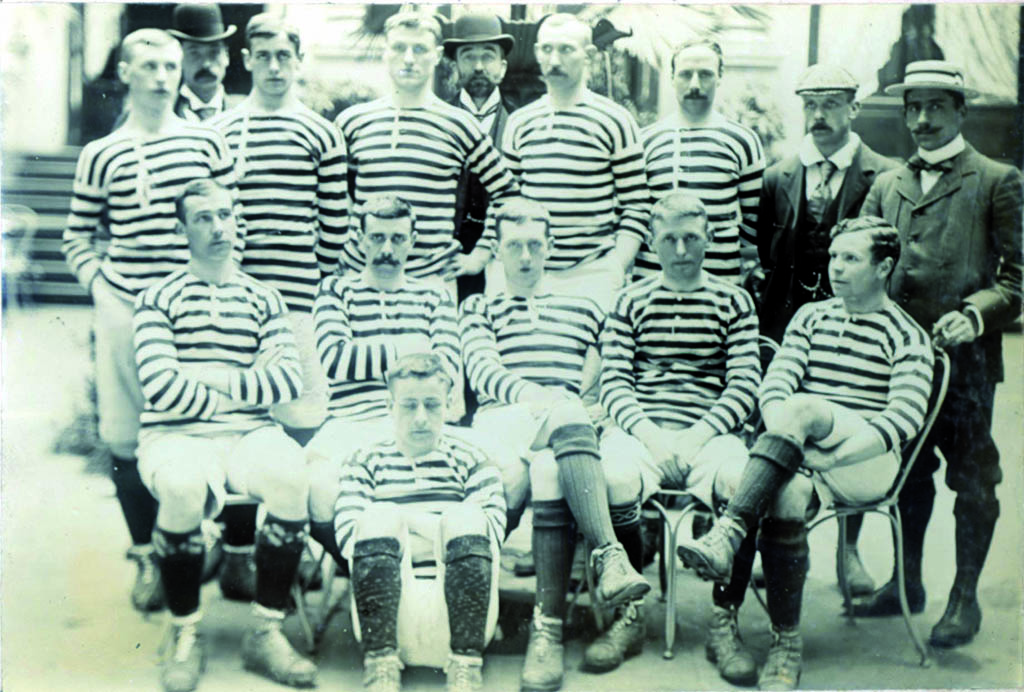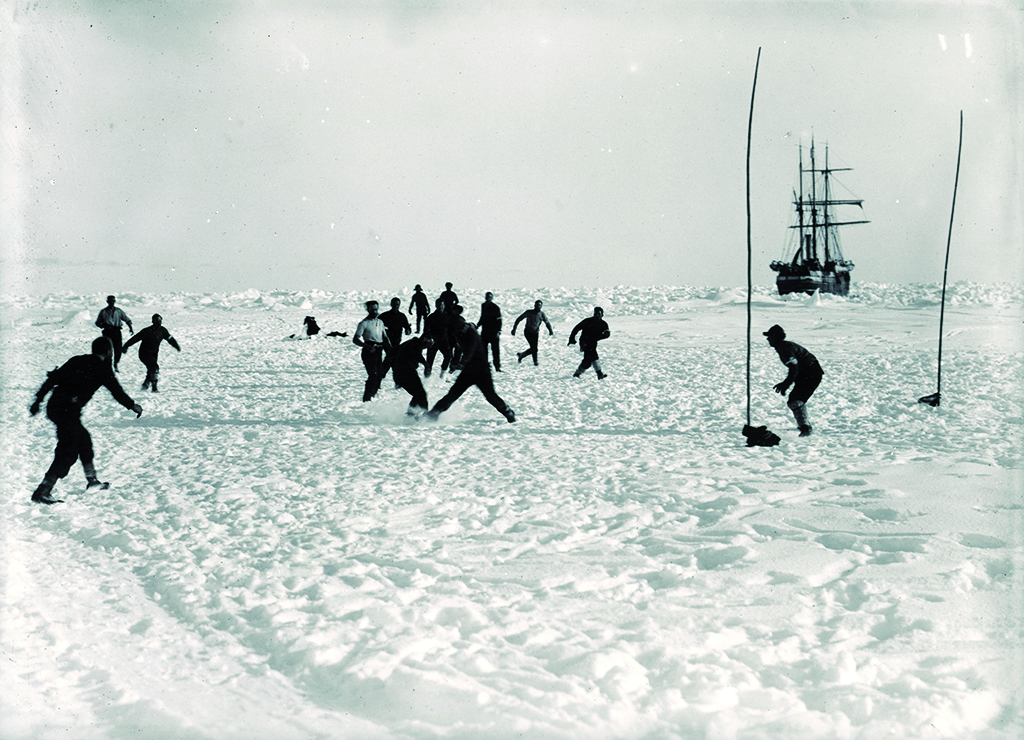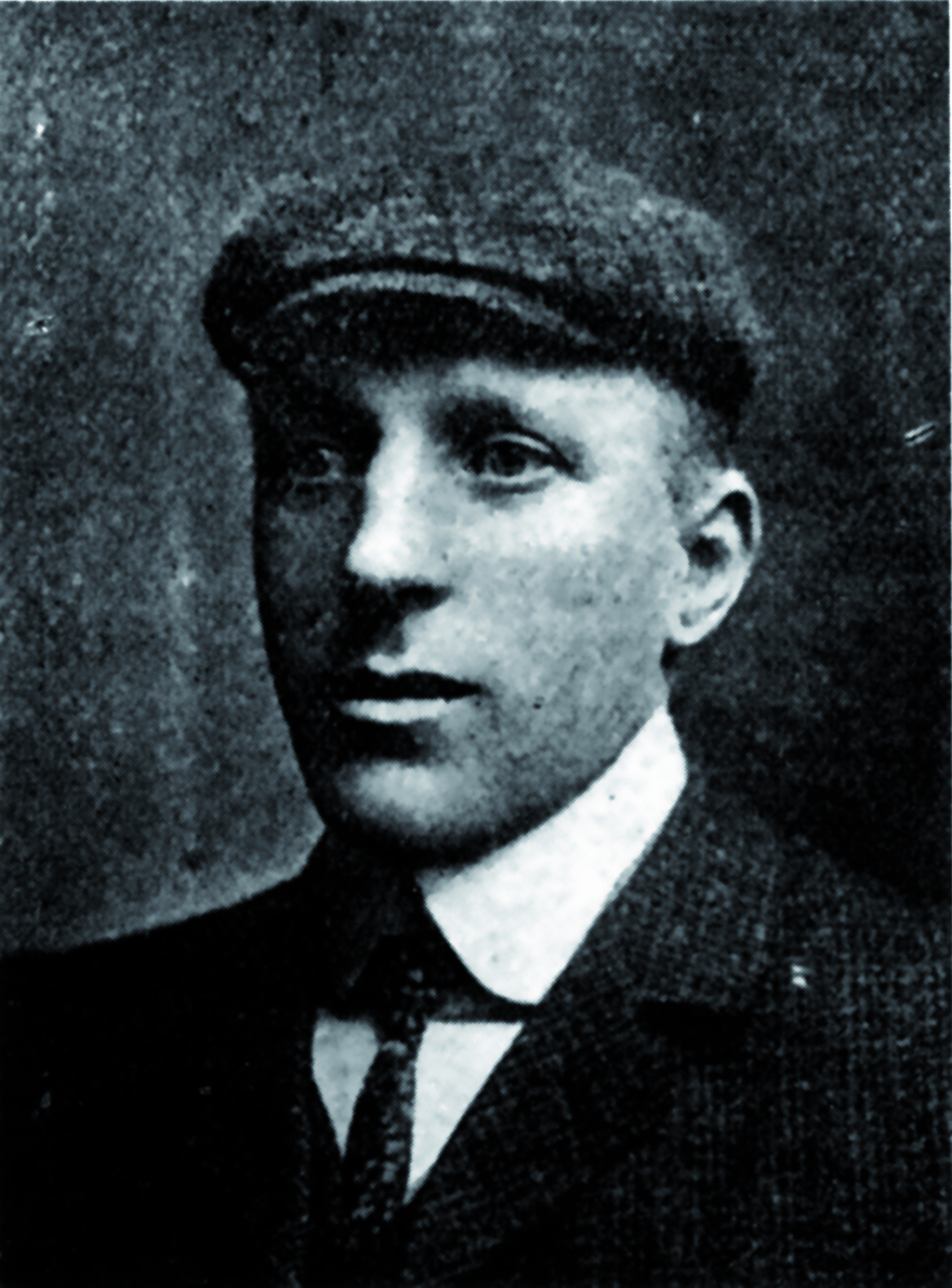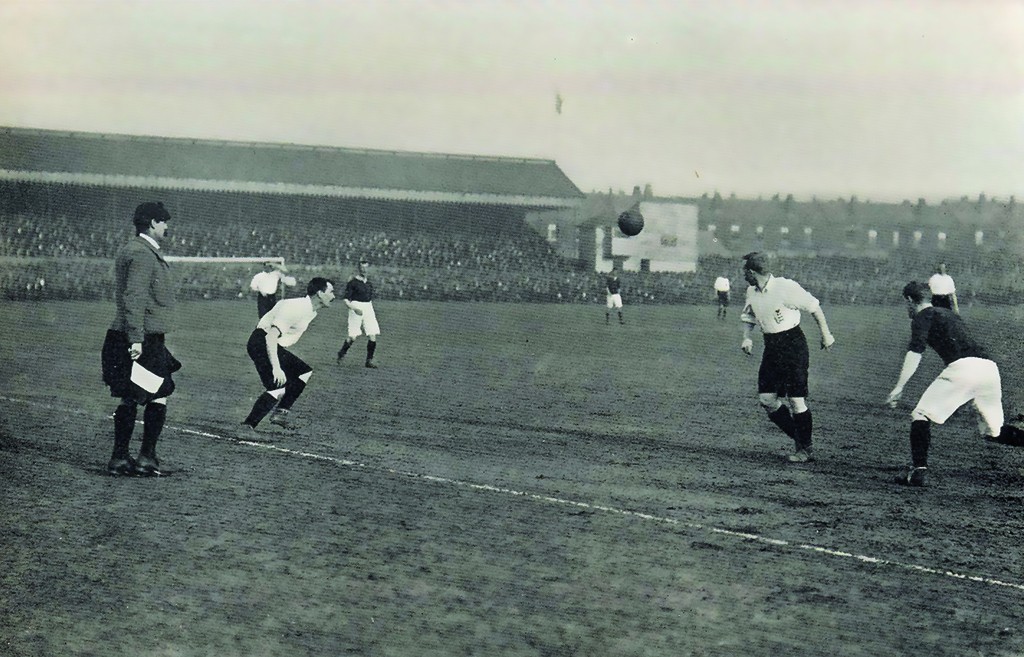
Scotland’s global gift to the world is football
Along with the telephone, penicillin and whisky, Scots also gave the world the beautiful game – football.
No other nation of Scotland’s size has left such a big footprint on the planet.
Even were it not for the invention of everything from the telephone and television to penicillin and insulin, Scotland’s legacy around the globe goes far beyond the worldwide penchant for a dram. For Scotland not only exported its people – many as the ambitious worker ants of the Empire – it also made a huge impact in the sporting sphere.
Scotland’s gift of the game of golf to the world is well known. Less widely recognised, however, is that Scots were football’s most important missionaries and were largely responsible for the game’s rapid global spread.
The English codified the game, but it was the Scots who enthusiastically adopted it and instantaneously began to export it. Nor was it only through the Empire: the Scots took football everywhere they went. Indeed, it was Scots who took the game to obscure footballing outposts like Australia, Burma, India, Singapore, Canada, China and Trinidad & Tobago.

Queen’s Park in 1898 (Photo: The Scottish Football Museum)
But the Scots were also responsible for installing the game in countries which are now powerhouses of the world game: Belgium, Russia, France and the South American nations of Uruguay, Argentina and Brazil.
Thanks to the obsession of Scotland with football, no corner of the globe – no matter how inhospitable – remained untouched by its reach.
In 1894, for example, crew members of Dundee whaling vessel SS Active posed for a photograph before a game of football on the Arctic ice. In 1904 crew members of a Scottish scientific expedition were pictured playing football on Antarctic ice, close to their ship, the SY Scotia. The Association game which had emanated from London in the 1860s was increasingly shaped by the Scots as the 1870s progressed.
Over the next half century they would play a key role in taking football across the world. A good example is Queen’s Park forward Robert Leckie, who on St Andrews Day 1872 lined up for Scotland against England in the world’s first official international football match. Ten years later Leckie could be found in the Eastern Cape Province on the southern edge of Africa playing for Port Elizabeth Wanderers.

Playing football on the ice Imperial Trans Antarctic Expedition (Photo: The Scottish Football Museum)
The Scottish obsession with the game stemmed partly from the fact that they were simply better at it than the English. By the 1870s the playing styles differed significantly on each side of the border; in England individualism remained central to the playing culture while in Scotland the game combined individual dribbling with quick passing moves that could involve half the team in one attack.
At international level this advanced style paid dividends; Scotland won 10 and only lost two of the 16 games played against England between 1872 and 1887. Because of this superiority, when new countries took up the game, they looked to Scotland.
When the Welsh FA was established in 1876 it adopted the byelaws of the Scottish FA and the Scotland team provided the opposition to Wales in its first three matches. In 1878 Queen’s Park and Caledonian FC played an exhibition match in Belfast to promote the Association code. Two years later the Irish FA was established, adopting the rules of the Scottish FA.
In England, the game expanded at breakneck speed and Scotland’s players were in the vanguard. Many were enticed to play for English clubs, earning the nickname ‘Scotch Professors’ due to their advanced style of play. When professionalism was legalised in England in 1885 the floodgates opened. Liverpool’s first team of 1892 consisted entirely of Scottish players and was the known as the ‘Team of the Macs’. The 1889 double-winning ‘Invincibles’ of Preston North End fielded eight Scots.
Scots held sway both on and off the pitch. In 1886 Fife mechanical engineer David Danskin founded Dial Square FC, a club better known today as Arsenal, while Scottish schoolteacher David Allan established Sunderland AFC in 1879, and Millwall was founded by Scottish jam factory workers.

Brazil ‘s first football coach was Jock Hamilton (Photo: The Scottish Football Museum)
The domination continued into the boardrooms: Lord Arthur Kinnaird, who represented Scotland in 1873 and played in an incredible nine FA Cup finals, held the office of FA President from 1890 until his death in 1923, while Perthshire’s William McGregor became ‘the Father of the Football League’ in 1888, establishing the new body whilst President of Aston Villa. When the
Birmingham FA was founded in 1875 five of the six men involved were Scots.
As the number of Scottish footballers increased, they began to find their way out into the wider world, and took football with them. Their impact within Europe was huge.
Former Dundee Strathmore player JT Smart established Copenhagen FC in 1876, and after Queen’s Park toured Denmark in 1898 they left behind Scotland international David Mitchell as coach to Denmark. Across the border in Sweden it was a similar story, with John Lawson, one of a group of textile workers from Newmilns in Ayrshire who were working in Gothenburg, setting up Örgryte Idrottsällskap in 1892. The oldest club in Sweden, it dominated the early years of Swedish football.
In 1895, Glaswegian James Ferguson arrived in Iceland to work at the Ísafold printing company and introduced local enthusiasts to gymnastics and football.
In central Europe, they adopted Scotland’s snappy short-passing game largely as a result of Rangers’ tour of Vienna in 1904, which made a huge impression on local football enthusiasts.
Across in Hungary, Scotland international John Tait Robertson introduced the same style of play to Hungary as coach of MTK Budapest, as did Scottish coaches Johnny Madden and John Dick in Prague at the Slavia and Sparta clubs. Linked by the river Danube the short passing game in the cities of Vienna, Budapest and Prague became known as the ‘Danubian School’.
In 1899 in Spain, Scottish doctors William Alexander Mackay and Robert Russell Ross founded the oldest existing club in the country, the Huelva Recreation Club of Andalusia, while Seville FC, dating from 1890, was formed by Scottish residents with its first president and captain coming from Elgin and Glasgow.
Even Barcelona has some Scottish DNA after several of the Ayrshire textile workers who created Escoces FC played for the Catalan giant at its foundation in 1899.

A linesman wearing a kilt, during an England v Scotland clash in Sheffield
(Photo: The Scottish Football Museum)
However, possibly the greatest contribution of Scottish footballers to the world game was their impact upon South America. Charles Miller was the son of a Scottish railway engineer and was sent to Southampton for an education, famously returning to Sao Paulo carrying two footballs and a set of playing rules.
In May 1894, a few months before Miller’s arrival, Thomas Donohoe, a textile worker from Busby in Renfrewshire, arrived in the Bangu district of Rio de Janeiro, introducing football to the area and in 1904 establishing the Bangu Athletic Club, the first Brazilian club to permit black footballers.
In Uruguay, three Scots – teacher William Leslie Poole, Willie J MacLean and Glaswegian railway engineer John Harley – helped establish the game and gifted to it the short passing game of their homeland. Scots were equally influential in Argentina where Alexander Watson Hutton introduced football at the St Andrews Scotch School in Buenos Aires in 1882, with the subsequent FP side winning 10 out the first 12 Argentine League titles between 1900-1911.
It was the same in North America – where the US team which achieved third place at the 1930 World Cup featured five Scots born players including captain Jim Gallacher from Kirkintilloch – and in places as far-flung as China and Russia.
Scotland had offered the world the game of football, and the world had gladly accepted.
Scottish Football Museum, Hampden Park, Glasgow.
Tel: 0141 616 6139
www.scottishfootballmuseum.org.uk
Photo: The Scottish Football Museum
TAGS

